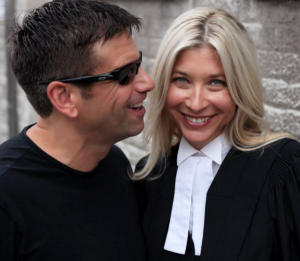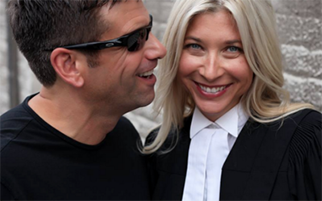
My $30,000 Lesson –
You might think that spending almost 20 years working in the criminal justice system would make me somewhat street smart. I used to buy cocaine and other drugs for a living as an undercover police officer in the drug enforcement section. Not that that makes me particularly special, but I did learn a lot of street smarts along the way.
I left that career when I became a mom. Hanging out with drug dealers was not a mom-friendly career choice. When I finished law school, I left policing and started working at the Crown Attorney’s office as a prosecutor.
I like to think of my former careers as pretty badass, or at least that’s what I tell my teenaged son. What I haven’t told him is how his dad (who was also a police officer) and I were scammed for more than $30,000. In fact, dozens of police officers were conned out of much more than that. The $30,000 turned out to be a much more significant loss when you factor in the tax penalties we later paid.
Even though more than a decade has passed, I remember it like it was yesterday. I’ve often fantasized about how much that $30,000 would be worth today if appropriately invested instead of giving it to a con artist. I was working at the Crown Attorney’s office (if you’re in the US, this is like the District Attorney’s office) and my husband Kevin called to tell me that we needed to write a cheque for $30,000 to the Canada Gift Program.
WTF?
After my initial WTF, he told me that all the guys up north (police officers posted in the north) were investing and getting huge income tax returns. It was all completely legal because one of the head guys was a prominent tax lawyer, and the financial advisor was a retired police officer who had been using this program for years.
According to the information given to Kevin, they were using a legal tax loophole that allowed for donations to amateur sports that resulted in matching tax returns.
I know, even as I write this now it seems ridiculous. However, at the time, we were open to trying anything legal to reduce our income tax, and we were assured that this was exactly what we were looking for.
Very long and humiliating story short, we received the huge deduction, thought everything was great because the Canada Revenue Agency (the Canadian IRS) would not have allowed our claim if it wasn’t legit. However, a few years later we were contacted by the CRA and advised that we had to repay our deductions, with interest.
The sad thing is, we weren’t the only ones this happened to. Thousands of Canadians across the country made donations to the “Canada Gift Program” promoted by ParkLane. According to Canadian Lawyer magazine, lawyers, nurses, and teachers also donated to the program, with one person giving $4 million.
Eventually, a class action lawsuit was brought against ParkLane Financial Group, and a settlement was reached. We received a fraction of what we originally “donated” which doesn’t include the penalties we paid to CRA. It was a costly lesson learned.
The Silver Lining
The silver lining in all of this is that I learned the lesson I had only ever given lip service to in the past, and that is, if it sounds too good to be true, it likely is. Unfortunately, people from every level of education, income bracket, experience, age, race, gender, sexual orientation, you name it, every day someone is learning an expensive lesson.
It seems that the lesson is being learned by someone new every day. Almost daily the media is covering a story about yet another scam that has cost everyday people their life savings.
But it’s easy to believe that you’re making the right decision when you receive information from people you trust. Unfortunately, we’re too quick to trust in some situations.
In my case, we trusted a financial advisor because he had connections to the police and provided an information package that looked legitimate because a lawyer endorsed it. I did check to see if the lawyer was a lawyer, and I found that he was registered in the province of Nova Scotia, just like the information package claimed. However, that’s as far as my checks went.
3 Steps to Avoid Being Scammed
Trusting ourselves to make the right decision regarding financial choices is easier if we do three simple things that could potentially save us thousands, or even millions of dollars. The best part, they can all be done in a matter of minutes and don’t require any financial expertise.
1. Follow the money!
Don’t be afraid to ask whom you’re writing the cheque to, and who is doing the investing? These two should be the same. Preferably, the investment should be in your name.
2. What do I get?
When handing over your hard-earned money, it should be accompanied with a legal document that outlines what you are getting in return for that money (examples could include: shares in a company, the name on title of real estate).
3. Who is looking out for you?
A license is typically required to invest money on other people’s behalf in a professional capacity. Who is overseeing this person or company to ensure they are above board? Is their license in good standing? All major license issuers have a website that you can search to find the status of a registrant (IIROC: Know your Advisor, FSCO).
So, the next time someone you know, like, and even trust suggests an investment take the time to do your due diligence. At a minimum, ask the questions listed above.
Connect on Social Media

